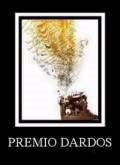Meshaay asked the following in the comment box recently...
Hey, I've been wondering, what do you believe as a Catholic? What makes you different from a Christian, and why did you choose Catholicism over Christianity? Thanks in advance.
Thanks for the question, Meshaay! I need to clarify right off (as some friends did kindly in the comment box) that as a Catholic, I am also a Christian. It's not one versus the other. In fact, Catholics are the original Christians and the largest Christian church in the world with over 1 billion members (1/6 the world's population). The Catholic Church is the one which Christ founded nearly 2000 years ago. All other Christian denominations (Protestant, Baptist, Lutheran, etc.) are the results of "splits", or individuals/groups breaking off from the Catholic Church over the past 500 years. And though these splits often occurred because an individual or group contested with Catholic doctrine, all Catholics do share with our evangelical Christian brothers and sisters a common faith in God as Creator and Father and in Jesus Christ as Lord and Savior.
As far as our differences go, the main ones include the Eucharist, Purgatory, devotion to the Blessed Mother and the Saints, the Sacraments (especially Confession), the Holy Father and Magisterium, and Sacred Tradition as a means of passing on truth along with Sacred Scripture.
Rather than make this a very lengthy post to explain all of the above, I'll do a series and cover one topic in each. Today is the first and foremost: The Eucharist.
As Catholics, we take Jesus at His word. In John 6:51-53, He says:
"'I am the living bread that came down from heaven; whoever eats this bread will live forever; and the bread that I will give is my flesh for the life of the world.'
The Jews quarreled among themselves, saying, 'How can this man give us (his) flesh to eat?'
Jesus said to them, 'Amen, amen, I say to you, unless you eat the flesh of the Son of Man and drink his blood, you do not have life within you. Whoever eats my flesh and drinks my blood has eternal life, and I will raise him on the last day.
'For my flesh is true food, and my blood is true drink. Whoever eats my flesh and drinks my blood remains in me and I in him. Just as the living Father sent me and I have life because of the Father, so also the one who feeds on me will have life because of me.
'This is the bread that came down from heaven. Unlike your ancestors who ate and still died, whoever eats this bread will live forever.'"
Most Protestants hold that Jesus was speaking symbolically in this passage. However, a look at the original Greek shows otherwise. The Greek word for "body" in John 6:54 is sarx, which means physical flesh, and the word for "eats" (trogon) translates as "gnawing" or "chewing." This is certainly not the language of metaphor. (Reference: The Institution of the Mass from Catholic Answers.)
His clarity is further shown by the fact that when many of His disciples left him due to the radicalism of the above (John 6:66), He let them go. He didn't call them back and say "Wait! I was speaking symbolically. The meaning of the parable is...". No — He let them go.
When He said His flesh would give us life, he meant it — literally. Take a look at how many times He uses the words "life" and "living" in the above passage. He even uses "Amen, Amen" to emphasize His words!
Jesus went on to fulfill His promise of John 6 at the Last Supper, when He took bread and wine and turned them into His body and blood. His words "This is My Body" and "This is My Blood" are recorded in three of the Gospel narratives. (Matthew 26:26-27, Mark 14:22-24, Luke 22:19-20). He commands His Apostles, and us, to "Do this in remembrance of Me" (Luke 22:19).
If I had to name the single most important reason I am Catholic, it is this. The Catholic Church brings me the Body, Blood, Soul, and Divinity of my Lord and God so that I might receive Him physically! If one is receptive, this can be a life-changing experience each and every time it occurs (see Secrets of the Eucharist). I have been blessed to attend Mass and receive Him every day since my First Holy Communion 14 years ago (only missing a few). He is my strength and my sustenance of life, just as He promised in John 6. Not only that, but because He remains fully present in the Eucharist He waits day and night in our churches for His children to come and be with Him. Adoration, or worship of Jesus in the Blessed Sacrament (the Eucharist), is, after receiving Him physically, one of the most powerful experiences of grace possible.
For more thorough and excellent explanations on the Eucharist, check out:
- Christ in the Eucharist from CatholicAnswers.com
- The Eucharist in Scripture
- The Real Presence from CatholicAnswers.com
- The Eucharist Article Index: Q & A and more from EWTN.com
I would like to welcome any non-Catholic readers I may have and encourage you to explore this topic. I hope that this series may be helpful to your understanding of why Catholics believe what we do. Charitable discussion in the comment box is encouraged!
Subscribe to:
Post Comments (Atom)











7 comments:
Claire, thank you so much for doing this series! I have a friend who is asking questions about the faith and I know that this will help immensely.
Thank you,
Rebekah
Claire, I tagged you on my blog!
I have a few questions for you concerning the beliefs of the Catholic faith. I'm not a Catholic, I'm a Baptist, so I'd like it if you would answer for me. Feel free to ask me any questions about why I'm not a Catholic as well.
Do you as a Catholic believe that the virgin Mary was conceived with out sin?
Why do you believe in Purgatory?
Do you believe in the Apocrypha as part of God’s Holy Scriptures?
Do you believe that when you take Communion that it actually Christ’s body and blood?
Do you, personally, see the Pope as the head of the church?
Do you see any distinction at all between Catholicism and Christianity?
Do you pray to the Saints?
Do you believe that Saints can pray for you?
Do you worship the virgin Mary?
Thanks, Cari
Rebekah, you are welcome. I am glad to hear I can be of assistance.
Lady Rose, thanks! In between all these theological posts, I'll try to fit in the meme... It looks like fun. :)
Cari, thank you for your questions. I will do my best to answer all of them, although I might have to do it in a number of seperate posts and over a period of time! :)
I am a little late on this post, but if annoymous wishes to go to my blog, I answer some of her questions there. Protestants have to understand that many Catholic beliefs are interconnected. That is why many Catholic apologists like to cover just one topic at a time and not jump from subject to subject.
Hi, Claire! I really enjoyed reading this post.
I just had a question about your saying that Catholics are the "original" Christians. Do you believe that the early church (described esp. in Acts) were, in fact, Catholic? I don't see how this could be true. Can you expound on this a little?
Thank you!
Hi,
I have the same questions as Cari and feel the same way. I am an evangelical Christian and believe that ONLY through the atoning death of Jesus on the cross we can be saved. Not through just taking communion. It is a heart thing. In Corinth the people got drunk off of communion, so do you think that made them saved? Nothing WE do can get us into heaven, only Jesus' death and the call of the holy spirit to receive him, can get us to heaven.
I also want to point out something from 1 Corinthians 1. Paul was talking about how people were saying that they either followed Paul or Apollos or Cephus or Christ. He got mad at them for that. He says that Christ can not be divided. Paul and Apollos were just messengers and workers of God.
Also Paul was a sinner. All the saints were sinners. Mary WAS A SINNER! For all have sinned and fall short of the glory of God.(Romans 3:23) This includes the "best" people that ever lived!
I hope this doesn't sound pushy or rude ect. I am saying this out of love. I hope you understand.
In Christ Alone,
Olivia
Post a Comment